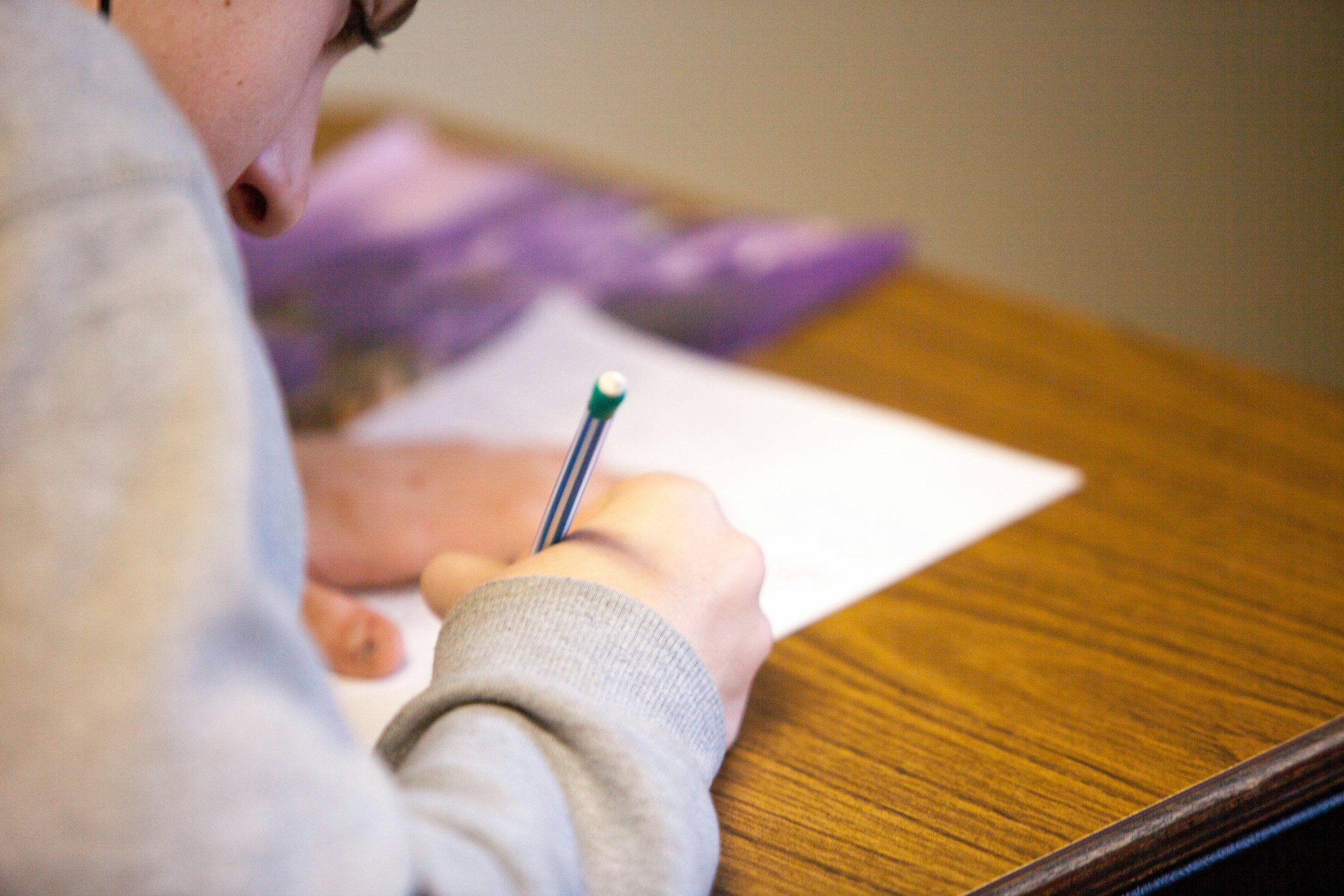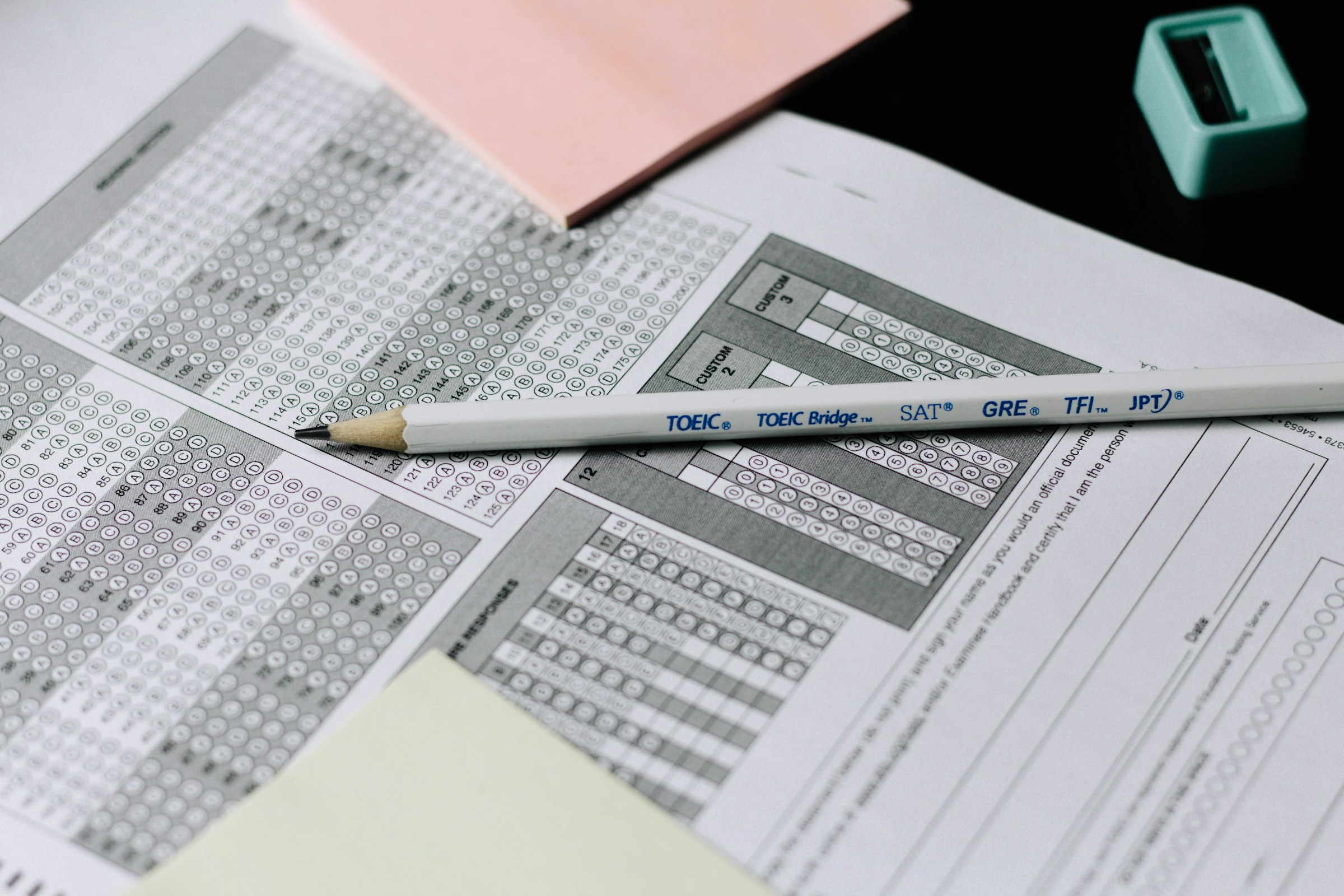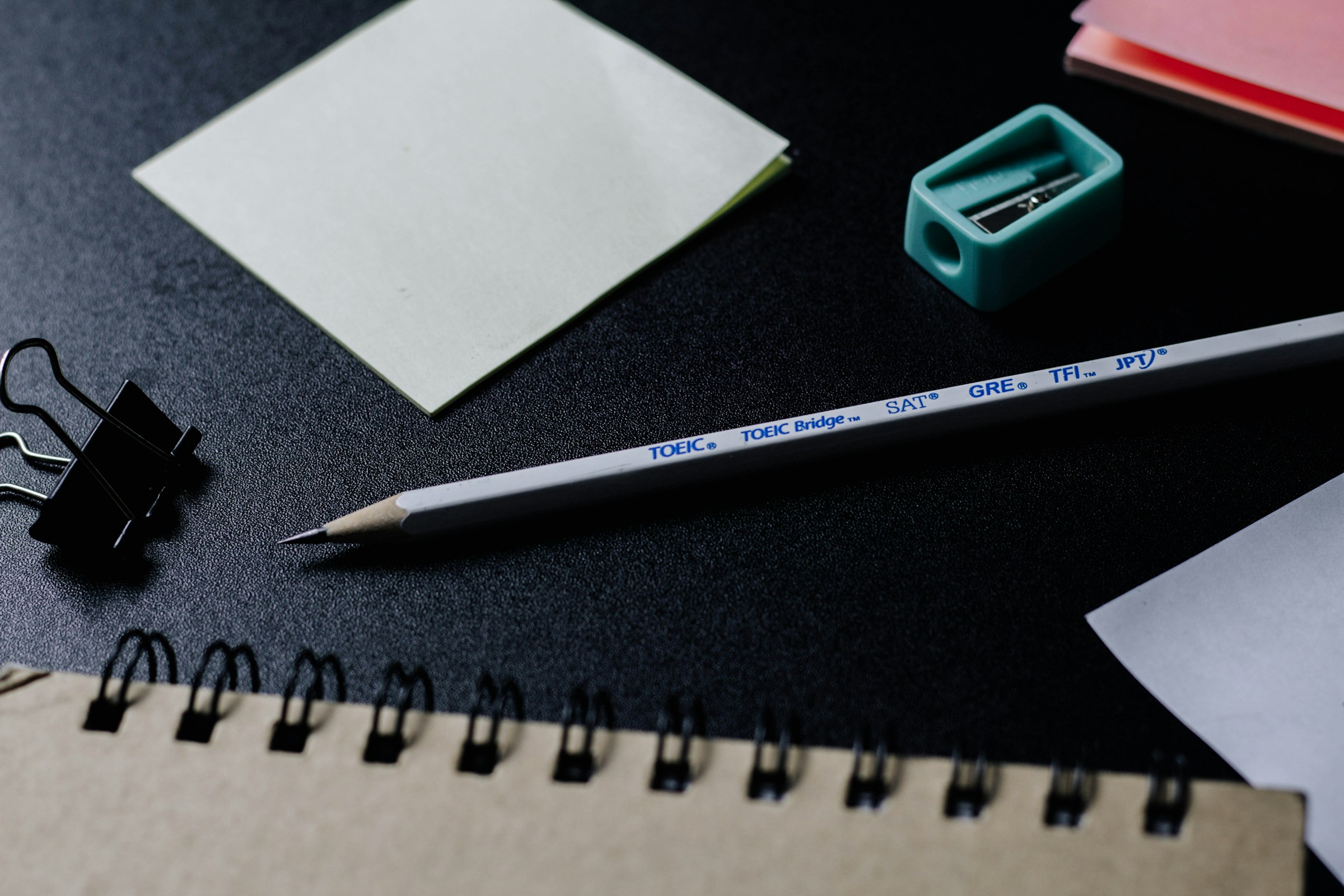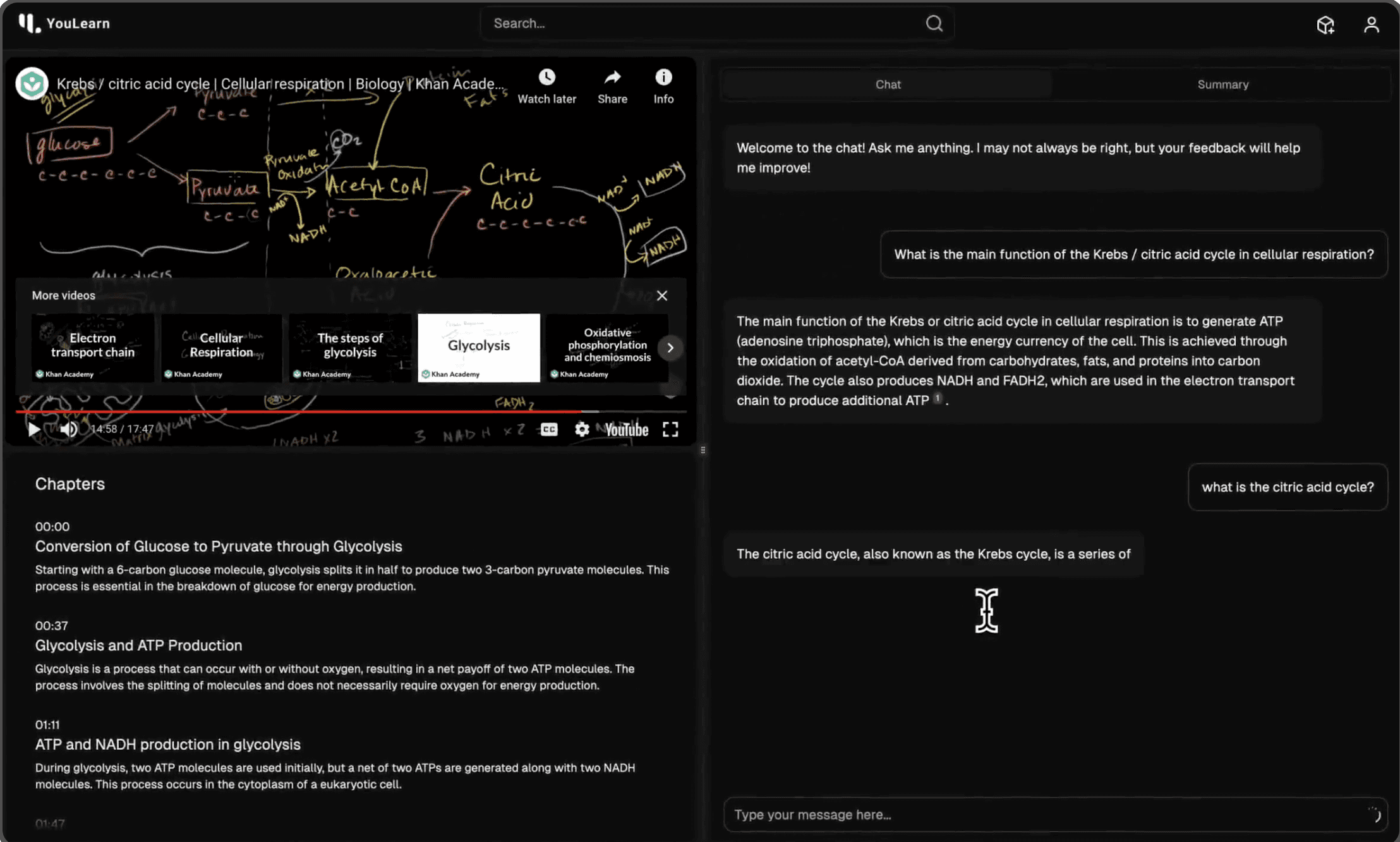15 Practical Tips On How To Pass A Test With Good Grades
Sep 20, 2024

YouLearn Team
Consider staring at a test paper, and the clock is ticking down. You know the material and have even studied it in advance, but you can’t seem to think straight for some reason. Anxiety sets in, and before you know it, you’re panicking. If this scenario sounds familiar, you’re not alone. Many students experience test anxiety, which can impact their performance regardless of their actual understanding of the material. You're not alone if you want to learn how to become a better student.
Learning how to pass a test can help alleviate stress by boosting your confidence and improving your scores. Read on to learn how to conquer your next test with ease. YouLearn's personal AI tutor can help you achieve your testing goals by providing personalized learning tailored to your needs.
Table of Contents
What Is The Easiest Way To Pass A Test?

Passing a test can be easy if you understand the format and types of questions that will be asked. For example, suppose your test will include short answer and essay questions. In that case, you can prepare by actively recalling information to answer those questions instead of just memorizing facts.
Focus On What’s Important
Tests often cover a lot of material, but some topics are more important than others. Before your test, get clear on which topics will be emphasized. Your teacher will often give clues about what is most important during lectures. Additionally, you can look for hints in your textbooks and study guides. Prioritize these topics to increase your chances of passing the test.
Practice Makes Perfect
One of the best ways to prepare for a test is to take practice tests. If your teacher has given you a study guide, practice questions may be at the end. Additionally, you can search online for more practice tests. Taking these tests will help you get comfortable with the material and the types of questions that may be asked. If you can, time yourself to get used to answering the questions under pressure.
Use Active Recall to Study
When it comes time to study for your test, don’t just passively read over your notes. Instead, use active recall techniques to boost your memory and answer questions quickly on test day. Active recall is a study method that involves testing yourself on the material you need to learn. For example, after reading a chapter in your textbook, you would close the book and write down everything you could remember from the section. Then, I would open the book and see what I missed to help reinforce my memory.
Space Out Your Studying
Cramming for a test may seem easy to prepare, but this approach can hurt your chances of passing. Instead, start studying well in advance and space out your studying over several days or weeks. In addition to helping you learn the information, this method reduces test anxiety so you can go into the exam calmly and collected.
15 Practical Tips On How To Pass A Test With Good Grades

1. Use YouLearn AI For Efficient Learning
YouLearn is a personal AI tutor that makes studying for tests and quizzes more efficient and effective. YouLearn supercharges your learning from YouTube videos, PDFs, and slides. Our AI chats with you about the content, provides quick summaries and breaks information into digestible chapters.
Whether you are a college student or a self-learner, we help you grasp material faster and more effectively. Just upload your content, and our AI transforms it into an interactive learning experience. With YouLearn, you're set to learn more intelligently, not more intricate. Learn anything with ease for free today with YouLearn's personal AI tutor.

2. Cultivate Good Study Habits
To know your stuff on test day, you must start studying well. Develop good study habits long before the day of the test. For instance, do your homework assignments carefully and turn them in on time. Review your notes daily. Write out your study guides. Take advantage of your teacher's practice tests, or create your own. When done habitually, these simple steps will help ensure that you know your stuff test day.
3. Don’t “Cram”
Spending hours memorizing the material you need the night before the test might seem like a good idea. Cramming for a test is highly counterproductive. Not only are you less likely to retain the information you need, but cramming also increases stress, negatively impacts sleep, and decreases your overall preparedness. So avoid the temptation to stay up late reviewing your notes. Last-minute cramming is far less likely to improve your grade than developing good study habits and getting a good night’s sleep.
4. Gather Materials the Night Before
Before bed (early, so you get a good night’s sleep), gather everything you need for the test and have it ready. Having everything ready the night before will help you feel more confident and minimize stress on the morning of the test. And it will give you a few extra minutes to sleep and eat a healthy breakfast.
5. Get a Good Night’s Sleep
And speaking of sleep…showing up to your test well-rested is one of the best things you can do to succeed on test day. Why should you make sleep a priority? A good night’s sleep will help you think more clearly during the test. It will also make it easier to cope with test-taking stress and anxiety. Moreover, excellent sleep habits have been shown to consolidate memory and improve academic performance, as well as reduce the risk of depression and other mental health disorders.
6. Eat a Healthy Breakfast
Like sleeping, eating is essential to self-care and test-taking preparation. After all, it’s hard to think clearly if your stomach is grumbling. As tough as it can be to eat when you’re nervous or rushing out the door, plan time in your morning on test day to eat a healthy breakfast. A mix of complex carbohydrates and healthy protein will keep you feeling full without making you feel sluggish.
Whole wheat cereal, eggs, oatmeal, berries, and nuts may be great choices (depending on your dietary needs and preferences). It’s best to avoid foods high in sugar, as they can give you a rush of energy that will wear off quickly, leaving you tired. And don’t forget to drink plenty of water. If possible, bring a bottle of water with you on test day.
7. Arrive Early
Arriving early at a test location can help decrease stress. It also lets you get into a positive state of mind before the test starts. Choose your seat as soon as possible. Organize your materials so they are readily available when you need them. Make sure you are physically comfortable (as much as possible). By settling in early, you are giving yourself time to get organized, relaxed, and mentally ready for the test to begin. Even in a high school, maximizing your time in the test classroom—even if it’s just a couple of minutes—can help you feel more comfortable, settled, and focused before the test begins.
8. Develop Positive Rituals
Don’t underestimate the importance of confidence and a positive mindset in test preparation. Positive rituals can help combat negative thinking, test anxiety, and lack of focus that can easily undermine your success on test day. Plan extra time for a short walk or listen to your favorite music. Engage in simple breathing exercises. Visualize yourself succeeding on the test. Your rituals can be unique to you. The important thing is developing a calming habit that will boost your confidence, attitude, and concentration when the test begins.
9. Listen to the Instructions
Once the test is in front of you, it’s tempting to block everything out so you can start immediately. Doing so, however, could cause you to miss out on critical information about the test itself. The teacher or proctor may offer details about the structure of the test, time limitations, grading techniques, or other items that could impact your approach. They may also point out steps you are likely to miss or other tips to help improve your chances of success. So, be sure to pay close attention to their instructions before you get started.
10. Read the Entire Test
Look over the entire test quickly before you get started. Doing so will help you understand the structure of the test and identify areas that may need more or less time. Once you read over the test, you can plan how you approach each section to ensure you can complete the entire test within the allotted time.
11. Do a “Brain Dump”
Remembering facts, data, or formulas is critical for specific tests. For these tests, taking a few minutes to write down all the information you need on scrap paper before you start can be helpful. Putting that vital information on paper can relieve stress and help you focus on the test questions without worrying about your ability to recall the facts. And now you have a “cheat sheet” to refer to throughout the test!
12. Answer the Questions You Know First
When possible, do a first pass through the test to immediately answer the “easy” questions or the ones you know. When you come to a question that you can’t answer (relatively) quickly, skip it on this first pass. Don’t rush through this first pass, but be mindful of time—you’ll want to leave yourself enough time to go back and answer the questions you skipped.
It’s important to remember that this technique is impossible on some tests. Standardized computer-based tests often do not allow you to skip questions and return to them later. You must work through each problem in order instead of skipping around on these tests.
13. Answer the Questions You Skipped
Once you’ve done a first pass, you now have to go back and answer the questions you skipped. In the best-case scenario, some of these questions aren’t as challenging as you initially thought. Your mind is warmed up, and you are fully engaged and focused at this point in the test. Answering the questions you know quickly may have reminded you of the details I need for these questions. Of course, I may still struggle with some of the questions, but that’s okay. Hopefully, a quick first pass lets you take time with the more challenging questions.
14. Be Sure the Test is Complete
Once you think I’ve answered all the questions, double-check to ensure I didn’t miss any. Check for additional questions on the back of the paper, for instance, or other places I might have missed or not noticed during my initial read-through. A common question is whether you should skip questions you can’t answer.
It’s impossible to answer that question generally: it depends on the specific test and the teacher’s rules. It may also depend on the value of each question and whether my teacher gives partial credit. But, if I’m not penalized for a wrong answer or I am penalized for leaving an answer blank, it is probably better to put something down than nothing.
15. Check Your Work
Finally, if I have time left, go back through the test and check my answers. Read over short answer and essay questions to check for typos, points I may have missed, or better ways to phrase my answers. If there were multiple components to the question, ensure I answered them all. Double-check my answers to math questions if I make a small error impacting the final answer. I don’t want to overthink answers, but a double-check can help me find and correct apparent mistakes.
Related Reading
• How to Be a Good Student
• Back to School Tips
How Can I Focus 100% On Studying?

1. Create a Study Space
You need to start by creating a dedicated study space to enhance your concentration. And no, not in your bed! While it might be tempting to study in bed, this is one of the least effective ways to focus. The comfort of your bed can lull you into a state of relaxation, making it difficult to concentrate on your work. Instead, designate a separate study area that is well-lit, comfortable, and distractions-free. Whether it's a desk in your room or a quiet corner in the library, having a specific place to study helps signal your brain that it's time to focus. Keep this area organized and clutter-free, and decorate it with personalized things that inspire you, like motivational quotes, photos, or plants.
2. Make a Study Routine
Creating a consistent study routine is a powerful way to enhance your focus. Even when you simply can’t focus or concentrate on anything, the power of routine can help. Designate specific times each day for studying (and make sure you stick to it!), just like you would for attending classes or going to the gym. This helps your brain know when it's time to study and when it's time to relax.
And avoid the temptation to pull all-nighters! They might seem like a good idea, but they often lead to sleep deprivation, negatively impacting your performance and health. Instead, use a calendar or timetable to plan your tasks. A straightforward routine allows you to track your progress and gives you a sense of accomplishment as you complete tasks, and it means you know exactly what to focus on when you sit down at your desk—setting a study schedule. Some students like a color-coded chart. You are outlining all their subjects and study sections.
Others like to use a calendar app or a chalkboard. If you study better early in the morning, prioritize your sessions then. Mark them somewhere you can see them, prepare the study area the night before, set your routine, and go for it. There’s no ‘right’ way to set a study schedule, just the way that works for you. Make sure to factor in enough downtime to enjoy being a student and relax between study sessions.
3. Set Yourself Goals
Goal-setting is everywhere. At school, sports teams, and at work. We need something to aim for and something to achieve. We need that goal to compare our achievements to assess whether we succeeded. Setting goals can provide a clear direction for your study sessions and motivate you. Break down your study material into manageable tasks and set specific, achievable goals. For example, aim to complete a chapter by the end of the day or write a certain number of words for an essay.
You can start quickly with quantifiable goals like studying for two hours between 6 p.m. – 8 p.m., Monday to Thursday. Complete one chapter of a given textbook per night. Write your essay before x time on x date. Each of these is specific and measurable. Yours can differ from this, of course, but these goals should give you an idea of how to get into the habit. Reward yourself. Don’t forget rewards, either. Our brains are wired for rewards, which is why gamification is powerful.
For instance, treat yourself to a square of chocolate for each paragraph you write or an episode of your favorite TV series after revising a topic. Use a similar setup to goals, like Studying for two hours between 6 p.m. – 8 p.m. Monday to Thursday and watching Netflix for two hours. Complete one textbook chapter daily, then grab a coffee at the local café. Write your essay before x time on x date and go shopping and buy something nice the next day. Once you've completed significant assignments or exams, reward yourself with something special, like a night out with friends or a new piece of clothing you've been eyeing. It’s essential to balance studying with enjoyment, even during exam season!
4. Minimize Distractions
Distractions are everywhere, from social media notifications to noisy roommates. To stay focused, try downloading browser extensions like StayFocusd to block your most distracting websites for a set period. There are also mobile apps that can set filter modes to block access to certain apps while you’re trying to study, and you may be able to restrict how much time you spend on specific apps in your phone’s settings.
Put your phone on Do Not Disturb or silent mode so you don't get interrupted by notifications mid-study. If you have the willpower, you can even turn off your phone or put it in a drawer away from your desk to avoid the temptation to check it during study sessions. Using noise-canceling headphones can also help reduce background noise, allowing you to concentrate better. Whether from cars on the road or other students in your accommodation, it’s a great way to stay focused.
5. Listen to Music
Listening to music can help create a productive study environment for some students. If you find that background noise enables you to focus, try listening to music while you study - but choosing the right music is essential! Opt for instrumental music or ambient sounds to avoid singing along and getting distracted, and make sure it’s not too loud.
Experiment with different genres and soundscapes to find the beat that best enhances your focus. Music can create an environment conducive to learning and concentration, whether it's classical, electronic, or natural sounds. Many students find that classical or lo-fi music provides a calming background that aids concentration, and you’ll find plenty of study playlists for this type of sound on YouTube.
6. Sleep Helps You Learn
Never underestimate the power of a good night's sleep. Sleep allows your brain to process and consolidate information, improving retention and understanding. Aim for 7-8 hours of quality, uninterrupted sleep each night to wake up refreshed and ready to tackle the day.
Establish a regular sleep schedule by going to bed and waking up at the same time every day. Avoid big meals, screens, and caffeine before bedtime, and create a relaxing pre-sleep routine like reading or meditation to help your body unwind.
7. Feed Your Brain
Food is fuel, and we can’t recommend a good diet enough… Put rubbish fuel in, and you'll get rubbish out! Proper nutrition and hydration play a significant role in cognitive function and concentration. Eating healthy foods and drinking plenty of water can significantly affect your focus and energy levels, helping you perform at your best.
While junk food and takeaways might be tempting, limit them to fresh fruits, vegetables, and whole grains. Fuel your brain with nutritious foods like nuts, seeds, and fish, which are high in Omega-3 fatty acids and known to boost brain power. Staying hydrated is equally important, so always have a water bottle nearby while studying.
8. Exercise Regularly
Your health and well-being are important, especially as a student. We all know exercise benefits our physical health and positively affects our brain. Regular physical activity increases blood flow to the brain, improving focus and retention of new information. Incorporate simple exercises into your routine, such as brisk walks around the local area before studying. This is a great way to wake you up from those sluggish moods so you can crack on and revise.
Activities like pilates, yoga, running, and weight training are also excellent options. Many universities run fitness classes and have societies or local gyms where you can work out or try a local gym membership if your budget allows.
9. Study with Friends
Studying with friends can make exam season less stressful and more enjoyable. Study groups, book clubs, cram sessions, or whatever your university has going on can all help. So pair with a couple of friends on the same course and hit the books together. You’ll want some solo time, but study time shared can also be amazingly productive. Organizing study groups allows for collaborative learning, deepens your understanding of complex topics, and encourages staying focused.
Working with peers allows you to ask questions, share insights, learn new perspectives, and hold each other accountable. You can bounce ideas off each other, help each other with problems, and generally push each other towards your goals. However, be careful not to let study groups turn into social gatherings. Set clear objectives and ensure the group remains focused on studying. Balancing social interaction with productive study time is critical to practical group study sessions!
10. Assess Your Study Methods
Everyone has unique learning styles, and understanding yours can help you tailor your study approach. Visual learners may benefit from diagrams and charts, while auditory learners might prefer listening to lectures or podcasts. Active learning is a proven technique for keeping your brain engaged and improving comprehension.
This could involve summarizing key points, self-quizzing, teaching concepts to others, and applying knowledge through problem-solving and simulations. These strategies help engage the brain, improve comprehension, reinforce understanding, and identify areas for further review. You can also try the Pomodoro technique, which involves breaking down study sessions into 25-minute intervals, separated by short 5-minute breaks, to maintain concentration and productivity.
YouLearn Your AI Personal Totur

YouLearn is your AI tutor, designed to supercharge your learning from YouTube videos, PDFs, and slides. Our AI chats with you about the content, provides quick summaries and breaks information into digestible chapters. Whether you are a college student or a self-learner, we help you grasp material faster and more effectively.
Just upload your content, and our AI transforms it into an interactive learning experience. With YouLearn, you're set to learn more intelligently, not intricately. Learn anything with ease for free today with YouLearn's personal AI tutor.
How To Boost Your Brain Before An Exam

1. Hit the Gym and Give Your Brain a Boost
Exercise helps improve fitness and develops a healthier brain. Activities like running, swimming, or cycling strengthen the connections between brain cells. This helps improve learning and memory skills so you can absorb more information from lectures and library books.
Aim to exercise for at least 30 minutes at least five times weekly for maximum brain benefits. If you are new to exercising, start with a couple of times a week and slowly build it up. Otherwise, you risk growing bored of the new routine before you’ve developed the habit.
2. Get Creative and Let Your Imagination Run Wild
Coloring in, as strange as it may sound, has been found to have the same effects on the brain as meditation. If you search online, you’ll find a vast selection of adult coloring books to match every interest! If cooking is more your thing, try some new ingredients and recipes. Or, if you’re more of an outdoorsy sort, challenge yourself to learn a new sport. Any time spent being creative and trying new things can affect your brain’s overall functioning.
3. Fuel Your Brain with Vitamins and Micronutrients
Specific vitamins and nutrients can boost brainpower in various ways. While zinc and iodine help support normal brain cognition, vitamins B6, B12, and folate help prevent fatigue, a major cause of procrastination during studies. Omega-3 and one of its essential fatty acids, DHA (docosahexaenoic acid), help the brain function correctly—a necessary part of learning. You can boost brainpower with vitamins and micronutrients by eating the following foods: Zinc—meat, fish, legumes, mushrooms, spinach, broccoli, garlic, nuts and seeds, cereals and dairy Iodine—cod, seaweed, turkey, yogurt, tuna, eggs, strawberries Vitamin B6—pork, chicken, turkey, fish, bread, eggs, vegetables, peanuts, milk and cereals Vitamin B12—meat, fish, dairy and cereals Omega-3—fish, nuts, seeds, and egg yolks.
While adding these vitamins to your daily diet may seem overwhelming, plenty of nutritional supplements can help you achieve this. The benefits of adding these vitamins and micronutrients can take several weeks to show, so try to begin adding them as soon as possible.
4. Make Time for Friends
Socializing is a significant part of university life, but did you know it can also help your brain perform better? Researchers found that conversing with someone for as little as 10 minutes daily can help keep your brain optimized, resulting in better memory and performance.
5. Allow Yourself to Power Nap
Making sure you get enough sleep at night and have a 30-minute power nap during the day gives your body enough time to repair and rejuvenate for another day of learning and studying.
6. Shake Up Your Daily Routine
Studies have found that frequently changing your daily routine, even in the slightest way, can help energize your brain and improve your efficiency and productivity when you study. Take a different route to and from university, try shopping somewhere new, or even challenge yourself by closing your eyes when unlocking the door. Aim to be surprised at least once every day.
7. Try Something New
New experiences help your brain continue to grow and take in and store information more easily. How about starting a new sport, learning a new language, or learning to play a musical instrument? Check out an exhibition at a nearby museum or art gallery, try your hand at some volunteering, or if you have enough time, get away for a day/weekend/week to a brand-new place.
8. Snack on Brain-Boosting Foods
Berries, such as blueberries, strawberries, and blackberries, are rich in antioxidants, particularly flavonoids. These compounds help reduce inflammation and oxidative stress in the brain, protecting brain cells from damage. This can improve memory and cognitive function, making berries an excellent snack for study sessions.
Citrus Fruits Citrus fruits, including oranges, grapefruits, lemons, and limes, are high in vitamin C and are potent antioxidants. Vitamin C is essential for brain health as it helps produce neurotransmitters, the chemicals that transmit signals in the brain. This can enhance focus and concentration, making citrus fruits an intelligent choice for your study diet.
Dark Chocolate Dark chocolate, especially varieties with 70% cocoa or more, is packed with flavonoids, caffeine, and antioxidants. These compounds can enhance brain function by improving blood flow and reducing inflammation. Plus, the small caffeine content can give you a slight but noticeable boost in focus and alertness.
How To Study For A Test By Yourself

Boost Your Study Game with an AI Study Buddy
YouLearn is your AI tutor, designed to supercharge your learning from YouTube videos, PDFs, and slides. Our AI chats with you about the content, provides quick summaries, and breaks information into digestible chapters.
Whether you are a college student or a self-learner, we help you grasp material faster and more effectively. Just upload your content, and our AI transforms it into an interactive learning experience. With YouLearn, you can learn more intelligently, not more challengingly. Learn anything with ease for free today with YouLearn's personal AI tutor.
Stay Positive to Pass That Test
A good attitude can go a long way when it comes to studying. If you believe a subject is boring or unimportant, you will have more difficulty recalling the information. Instead, develop a curiosity about the material.
The Best Order to Study for a Test
The study order should be as follows: read, recite aloud, write notes in your own words, ask yourself questions about the material, and review. Memorization comes last after you have a solid understanding of the material.
Organize Study Materials into Clusters
Organize the material into meaningful clusters, as this will help with recall.
Review Your Notes ASAP
Review notes soon after lectures to make sure they make sense. Frequent review will decrease the material you need to relearn for exams.
Engage Your Senses to Learn Better
Expose as many senses as possible to the study material: write it, speak it, hear it, visualize it. This will help commit the material to memory.
Use Mental Imagery to Study for a Test
Use imagery to remember material: Close your eyes and get a picture of the explanation and summary answer on the page. See the underlined keywords.
Create Associations to Help You Remember
Create associations with the material. It is easier to recall new information if it is attached to old, easily retrieved information.
Predict Test Questions and Answer Them
Predict exam questions, write answers, and work out problems. Overlearning the materials helps you make sure you know it.
Use the Recency-Primacy Effect to Your Advantage
Memorize materials in short intervals as you are more likely to remember the material at the start and the end of your study intervals. Recite what you have memorized at random times.
Use Study Aids to Help You Learn Better
Use study aides, such as note cards of critical points, keywords, definitions, and equations. Go into greater depth, do extra problems, and immerse yourself. Explain the main ideas to friends or join a study group.
Related Reading
• Tips for School
• How to Do Good in School
• Study Strategies for High School Students
• Best Study Method
• College Study Tips
• Active Study Methods
Learn Anything With Ease for Free Today with YouLearn's Personal AI Tutor

YouLearn is your AI tutor, designed to supercharge your learning from YouTube videos, PDFs, and slides. Our AI chats with you about the content, provides quick summaries and breaks information into digestible chapters. Whether you are a college student or a self-learner, we help you grasp material faster and more effectively.
Just upload your content, and our AI transforms it into an interactive learning experience. With YouLearn, you can learn more intelligently, not more challengingly. Learn anything with ease for free today with YouLearn's personal AI tutor.
Related Reading
• High School Tips
• High School Study Skills
• How to Pass School
• How to Study Better in College
• How to Study by Yourself

